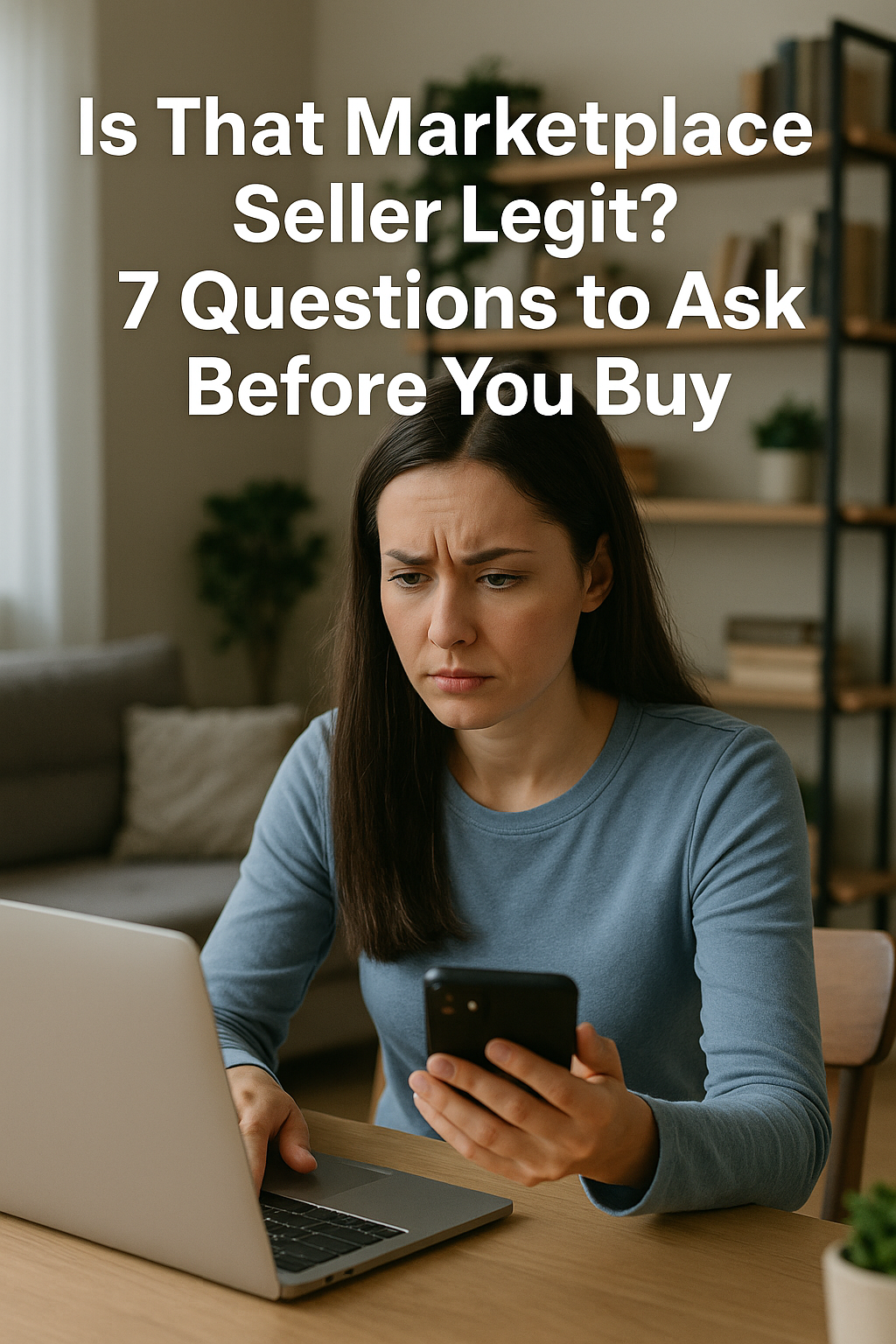Is That Marketplace Seller Legit? 7 Questions to Ask Before You Buy
Published on May 16, 2025 by SureBuy.io Team

Buying on platforms like Facebook Marketplace, Craigslist, and OfferUp can be a great way to save money — but also a quick way to get scammed if you're not careful. The biggest uncertainty for most buyers? Figuring out if the seller is actually legit.
Before you send payment or agree to meet up, here are 7 simple questions that can help you separate real deals from potential scams.
1. How Old Is Their Profile?
If the seller’s account was just created, that’s often a red flag. Legitimate sellers usually have a history — whether it’s prior reviews, listings, or basic activity like friends or followers. Scammers tend to create throwaway accounts that disappear quickly after a few days of posting suspicious deals.
2. Is the Price Too Good to Be True?
Scammers love using unrealistic pricing to bait you in. A $1,200 MacBook listed for $300? A designer handbag at 90% off? Before you fall for it, check how much the item normally sells for on other platforms. Use SureBuy.io to check pricing trends instantly — if the deal looks too good, it probably is.
3. Are They Willing to Meet in a Public Place?
Safe sellers are almost always willing to meet in a public, well-lit location — especially for big-ticket items. If someone refuses to meet or insists on shipping an item sight unseen, that’s a huge warning sign. Police stations, grocery store lots, and bank lobbies make great meetup spots.
4. Are Their Responses Clear and Consistent?
Watch out for vague replies, strange grammar, or dodged questions. Scam sellers often send copy-pasted responses and avoid giving specifics about the item, payment, or location. If you ask three questions and only get one weird answer back, trust your gut and move on.
5. What Payment Methods Are They Suggesting?
Scammers often push untraceable payment methods like gift cards, Zelle, Cash App, or Venmo. If someone insists on those — especially without offering buyer protection — it’s best to walk away. For online purchases, PayPal Goods & Services is safer. For local meetups, cash works fine if you're in public.
6. Are Their Listings Recycled or Generic?
Does the same image show up in other listings? Does the description seem overly generic or copied? Use reverse image search to see if the item photos appear elsewhere. Scammers often steal photos from real listings to make their fake posts seem more convincing.
7. Are They Pressuring You to Act Fast?
“Other people are interested.” “You have to pay now.” “It’s first come, first served.” These are all pressure tactics meant to rush you before you’ve had time to think. A legit seller won’t mind answering your questions and giving you a little time to decide.
Bottom line: if something feels off — it probably is.
Want a second opinion on a sketchy listing? Try SureBuy.io to check it for scams and overpriced deals in seconds.
Stay safe and shop smarter — use SureBuy.io to scan any resale listing before you buy.
FAQs About Marketplace Safety
About the Author
SureBuy.io Team
We’re the folks behind SureBuy.io, a free AI tool that helps buyers avoid scams, inflated prices, and sketchy sellers on any resale platform. Our goal is to make secondhand shopping safer, smarter, and a lot less stressful — one scan at a time.